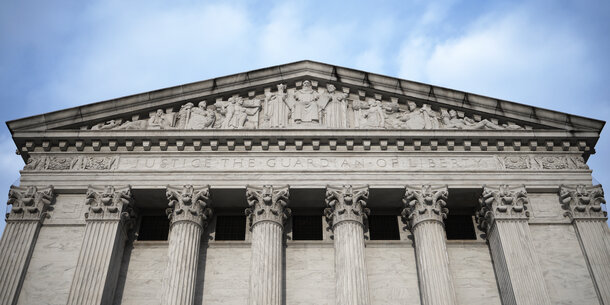In Rucho v. Common Cause, the Supreme Court put partisan gerrymandering claims brought under the U.S. Constitution squarely beyond the reach of federal courts. Since the Court’s ruling in 2019, voters challenging gerrymandered maps have increasingly turned to state constitutions and state courts. Claims raising issues of partisan fairness have been filed in 18 states since states adopted new congressional and state legislative maps as part of the redistricting cycle that began in 2021.
The past few months have seen a flurry of activity. Since this summer, the Wisconsin Supreme Court agreed to hear a lawsuit challenging its legislative maps, the New Mexico Supreme Court and Kentucky Supreme Court held partisan gerrymandering justiciable but did not strike down their states’ respective maps, and the New Hampshire Supreme Court ruled that partisan gerrymandering claims are not justiciable under its state constitution. Major cases are also pending before state high courts in Florida and Utah.
Here is the status of every partisan gerrymandering lawsuit filed in state court since the start of the redistricting cycle.
State Where Partisan Gerrymandering Claims Were Found Nonjusticiable
Courts in Kansas, Nevada, New Hampshire, and North Carolina adopted the U.S. Supreme Court’s reasoning from Rucho v. Common Cause and found partisan gerrymandering claims to be political questions not suited for judicial resolution. In Nevada, a trial court reached this conclusion, so the decision lacks precedential value. However, in Kansas, New Hampshire, and North Carolina, these rulings came from the state’s supreme court.






